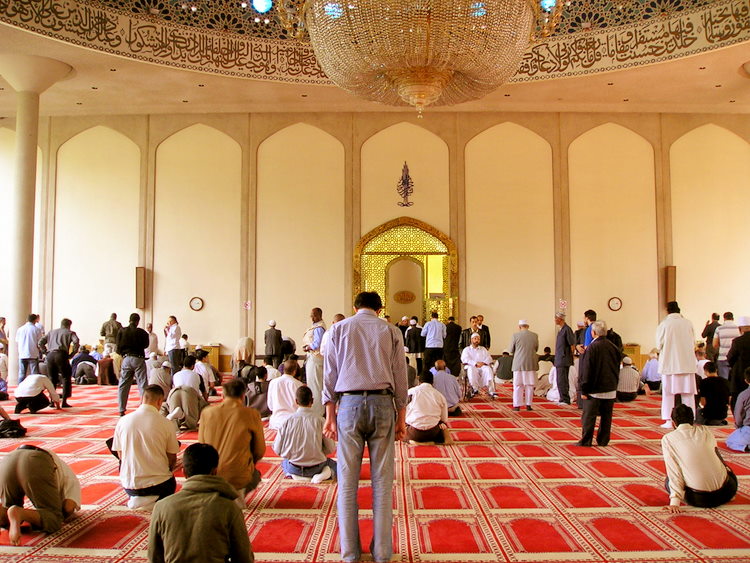By Thomas Maldonado
Not long ago on Twitter, I came across the loaded tweet of one Dr. Craig Considine, a PhD in Sociology and devout Catholic, according to Sheikh Google, who oddly tweeted:
“Being an ‘ex-Christian’ does not make one an authority on Christianity. Similarly, being an ‘ex-Muslim’ does not make one an authority on Islam. It’s intellectually dishonest to claim that your lived experience is part of some general truth about something as complex as religion.”
There is a common theme popping up lately that ex-Muslims cannot use their lifeworld discourse experiences to speak about choosing to no longer be Muslim or to practice the Islamic faith unless he or she was, or is, an ‘authority’ on Islam.
In the same manner that Muslim converts can give a presentation in Dr. Considine’s Fall 2018 ‘Muslims in American Society’ class at Rice University, and claim that their lived experiences of leaving Christianity to become Muslim as a general truth of Christianity’s falsehood, then likewise, ex-Muslims who share their life-world discourses of leaving Islam is just as equally valid and intellectually honest.
I strongly encourage Dr. Considine to consider giving a future course at the University where his students can explore ‘Ex-Muslims in Western Society’ and invite ex-Muslims to give a similar presentation on their experiences. This would truly show his commitment to our religious diversity and pluralism in the West during these trying and polarised times.
Also, I think that the tweet is unclear about being an ‘authority on Islam.’ Who does Dr. Considine consider an authority on Islam? His response would most likely be met with resistance among the diverse Muslims communities who cannot even agree themselves on who a proper Muslim authority is.
Is it the Mufti of Saudi Arabia? The Rector of al-Azhar? The Ayatollah of Iran? Which sheikh of the many Sheikhs among Sunni and Shia Islam? From my own personal experience as an ex-Salafi Muslim, Salafis alone war with one another on which Salafi sheikhs are their authorities in the religion.
Dr. Considine’s discourse stems from a wider claim that ex-Muslims are not authorities on Islam, therefore they have no right to speak about Islam. While I know that Dr. Considine is not stating this verbatim, there are those among the ultra-religious who do.
Some go a step further and state that ex-Muslims did not really understand Islam, so they left it. But then the question arises – what exactly is the meaning of ‘not really understanding Islam?’ Are there prerequisites, conditions, principles and the like to ‘really understanding Islam?’ If so, what are they based on and from whom?
In reality, this is merely a tactic used by the ultra-religious to silence any lifeworld discourse that is not in accordance with religious adherence.
If an ex-Muslim never really studied Islam or sat in Islamic study circles at the masjid, then their discourse is immediately discredited and dismissed. However, with the rise of ex-Muslims possessing specialist discourse experience on Islam (meaning those who chose to no longer be Muslim based on the contradictory theology, dogma, ideology and belief system of the Islamic texts), newer tactics are being used such as the level of knowledge one acquired, the amount of Quran memorised, and so forth.
According to the ultra-religious, Islam requires years of intensive study that no one can grasp until the scholars of a particular group recognise those qualities from that individual. It is almost as if one has to become a Muslim scholar in order to fully understand Islam. Of course, this is problematic for several reasons.
First, in order to become a Muslim: one is not asked to learn Islam intensively before converting; there is no need to master Arabic and all of its intricate grammatical sciences; or to memorise the Quran with all of its pronunciation rules and modes of recitation; or to memorise gazillions of hadith along with the chain of narrators and their biographies; or to learn Islamic law and its multiple rulings that coincide with the Islamic texts.

In fact, a non-Muslim is usually rushed into saying the Shahadah, the Islamic testament of faith, and told to worry about everything else later – ‘understanding’ Islam included. One can see the recipe for disaster once the new Muslim learns more about Islam and discovers things that are irreconcilable for them to believe in.
Imagine if Islam were like Judaism or Catholicism where one has to take arduous classes before conversion to ensure that the interested individual really wants to convert to the religion. Imagine the amount of people who would have second thoughts before converting after learning about something in Islam that did not sit right with them during the conversion classes.
I think such an approach would probably result in fewer converts, but there would be those prone to staying Muslim after knowing its pros and cons.
Second, when applying the same principles about ex-Muslims ‘not really understanding Islam’ as the reason for their so-called apostasy, then this means that Muslim converts did ‘not really understand [insert any other religion here]’ and would have to have the same in-depth knowledge and authority of their former religions before critiquing them and labelling them as false religions.
Life-world discourses are lived experiences that are part of a general truth concerning the complexity of religion. It is what prompted the creation stories of every tribe of people from indigenous North America to the ends of South Africa; Moses to accommodate the Hebrews in their journey towards Israel as they traversed the harsh deserts of Sinai; Paul to write compelling letters after his conversion to messianic Christianity that would become the Gospels; Mohammad, after a spiritual awakening in the cave of Hira, to feel that he was sent to humankind as a last prophet with a final message; and all of the other countless founders of other world religions.
Religion has always been, and will continue to be, transmitted culture, language and ideology; it is a purely human experience.
Similar to new Muslims and their conversion stories, ex-Muslims have every right to express their life world discourse experiences without being an authority in Islam and with whatever knowledge of Islam they possessed when they decided that they could no longer practice or believe in the religion.
Attempting to silence that lived experience would truly be intellectually dishonest within itself.
*Main pic credit: Marco Verch / trendingtopics
 Thomas Maldonado is a Latino, Secular Humanist, who practised Salafi Islam for approximately twenty-eight years. During that time he translated and published over eight Islamic works from prominent Salafi scholars that are still widely read around the world.
Thomas Maldonado is a Latino, Secular Humanist, who practised Salafi Islam for approximately twenty-eight years. During that time he translated and published over eight Islamic works from prominent Salafi scholars that are still widely read around the world.
He currently resides in Minnesota, U.S.A, where he teaches English at his local university and community college while advocating for immigrant and refugee rights through education and higher learning, as well as educating the American public on issues surrounding Salafism.


Salaam, wow ex-salafi! Its 1 am here in chuco and this totally took me be surprise. Anyways was just trying to look you up and found this.
Hassan! Wow, how long has it been since we last talked? It has to be about four years now since I left Texas. I have a blog called “Off Da Manhaj” you can look it up and find my email address there. I usually do not give out my number or personal email on websites because of the crazies. Hopefully, you and your family are doing well.
Take care,
AI
Re. “…ex-Muslims have every right to express their life world discourse experiences without being an authority in Islam.” This is certainly true; however, I disagree with the all too common idea that an ex-Muslim is the only reliable source of information on Islam. Certainly personal experience should not be invalidated, but neither should it be used as a definitive source. The fact that people like Ayaan Hirsi Ali, Walid Shoebat, Nonie Darwish and Wafa Sultan have been able to build lucrative careers as “authorities on Islam”, defining not only the religion, but the whole Islamic world, using “personal experience” as their base, should certainly be called into question.
It’s rather like using an ex-lover as the only reliable source of information about a person. Sure, the information can be useful, but you still need to keep some other variables in mind.
Linda,
Thank you for your comment. I was going to respond, but decided instead to post on my blog. Hopefully you will see this and get to read the post entitled: “Ex-Muslims Are Not the Only Reliable Source of Information on Islam!” My Reply to a Thought-Provoking Comment on Ex-Muslim Celebrity and Life World Discourses”.
A very well articulated piece. We don’t have to be authorities on Islam (whatever that actually means) to express our opinions. We don’t have to be Shaykh al-Azhar or Grand Mufti of Al-Haramain. We all have just as much right to express ourselves as anyone else – regardless of the level of Islam we were at when we were Muslims. Don’t let anyone delegitimise you. Whatever being human means – it must surely include exploring who we are and expressing our thoughts and feelings during our brief hour upon this stage.
Thanks for the comment Hassan, and you’re welcome to write here once again